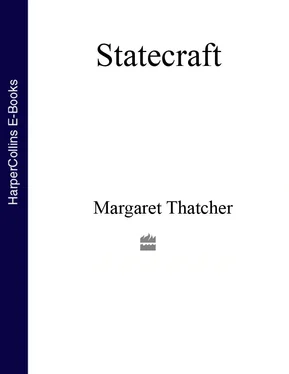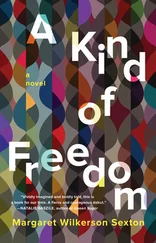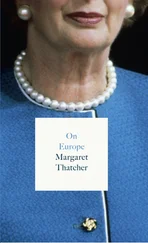Developments since the crash of 1998 have provided Russia and the West with a breathing space. As one would expect after a dramatic fall in the currency, Russian goods are now cheaper and exports have soared. The economy has been growing again (by 5.4 per cent in 1999 and 8.3 per cent in 2000). The trebling of oil prices has also benefited Russia, one of the world’s major oil producers, and the government is now raising US$5.5 billion annually from the energy sector.
These favourable conditions offer a new opportunity to tackle the fundamental obstacles to prosperity. As a basis for future action to shift Russia back on course towards becoming a ‘normal country’ I suggest the following:
There must be no more self-deception. If the people and policies dominant in Russia at any time are opposed to real reform there should be no financial cushion provided by the West or the IMF. Such aid is worse than useless – it’s doubly damaging, because it associates the cause of reform with failure
We must keep the long-term goal in view, which is to create a real free-enterprise economy based on sound money, low taxes, limited government and above all a rule of law. Barely a start has been made on achieving these things. And while the foundations are rotten, so will be the economic edifice
While connections, corruption, crime and cartels form the basis of the Russian system there can be no true freedom and no genuine democracy. The West must speak the truth about this openly to the Russian people
We have to stop regarding the only people who matter as being the political and bureaucratic elite in Moscow. Russia is naturally extremely rich – with major deposits of coal, oil, gas, timber and strategic minerals. But its greatest potential wealth lies in the millions of young would-be Russian entrepreneurs. They must be helped to understand what capitalism is about – and what it is not about. Above all, perhaps, we have to be patient. Today’s Russians face the Herculean task of undoing the harm done, not just by seventy years of Soviet communism but by previous centuries of autocracy. And ultimately only the Russians themselves can perform that task.
RUSSIA AS A MILITARY POWER
If almost a decade down the track from the end of Soviet communism we were now dealing in Russia with a ‘normal country’, that is a stable democracy with a functioning market economy, the West could afford to take a relaxed view of Russian military power, strategic interests and political intentions. Of course, even in those happy circumstances, the operation of the balance of power in Europe and possibly Asia would mean rivalries and tensions between Russia and the United States and its allies. But such problems would be more manageable and the reactions of Russia more predictable.
The worst error, as always in dealing with Russia, is naïveté. The Clinton administration initially sought to treat Russia as a ‘strategic partner’. But, however important Russia remained in its own backyard, the Russians had neither the will nor the means to enter into any global partnership with the United States. Moreover, Russian Cold War rhetoric between 1995 and 1997, when it tried and failed to block NATO’s expansion to take in Poland, Hungary and the Czech Republic, revealed the emptiness of any such project. This, it will be recalled, was when President Yeltsin warned: ‘NATO will get as good as it gives. We have sufficient deterrent forces, including nuclear forces.’ *
For as long as they could afford to do so, the Russians also frustrated Western aims in the countries of the former Yugoslavia. If Russia was supposed to be the West’s partner there no one seems to have told the Kremlin. As a result of NATO’s Kosovo air campaign against the Serbs in March–June 1999 Russia suspended all military contacts with NATO. But most revealing of the emotional temperature among Russia’s military and political elite was the threatening language they again used. The chief of the General Staff pointed out that he supported ‘the use of nuclear weapons to protect Russia’s territorial integrity’. The chairman of the Defence Committee of the Duma helpfully suggested that the state’s strategic concept should be amended to include the option ‘to deliver pre-emptive nuclear strikes’. Another retired general demanded Russia’s withdrawal from the Intermediate Range Nuclear Forces (INF) Treaty.
The fact that the Russians acquiesced in Kosovo and eventually seem to have helped bring President Slobodan Milošević to the negotiating table reflected their weakness rather than their good will. Above all, it reflected their economic weakness, for the IMF was about to release a further tranche of $4.5 billion over eighteen months when the campaign began. Even then, the Russian generals (with or without the knowledge of President Yeltsin) sent Russian troops to seize Pristina airport, for the sake of swagger, so risking with no apparent concern a major international confrontation.
Russia has for centuries grown used to compensating for its economic underdevelopment by means of its military strength. For the Soviet Union, particularly in the last decades of its existence, such an approach was the only means of remaining a superpower. Today’s Russian leaders appear to have inherited something of that outlook.
But only something – for although it has over a million military personnel, and its defence spending still probably runs at over 5 per cent of GDP, the state of Russia’s armed forces as a whole is pitiful. *Non-payment of wages or payment in kind has left soldiers and sailors in some areas forced to grow cabbages or to engage in black-marketeering to avoid starvation. Morale and discipline are generally bad.
This has made some Russian generals and politicians keen to maximise the effectiveness of their most sophisticated weaponry. Both President Yeltsin and President Putin have emphasised the central importance of Russia’s nuclear defence. In November 1993 Russia’s new military doctrine both ended the previous Soviet pledge of ‘no first use’ of nuclear weapons and outlined more flexible options for their use. In April 1999 President Yeltsin responded to the opening of NATO’s bombing campaign against Serbia by holding a special meeting of his Security Council on the subject which he opened by stating that ‘nuclear forces were and remain the key element in the national security strategy and Russia’s military might’. Mr Putin chose to make one of his first visits as President to a centre for nuclear weapons research at which he told his audience: ‘We will retain and strengthen Russia’s nuclear weapons and its nuclear complex.’ The symbolism and the message were clear.
Russia has been concentrating on the development of a new generation of missiles and warheads, while seeking to extend the life of existing weapons systems. The most important new programme is that of the SS-27 Topol-M Inter-Continental Ballistic Missile (ICBM). Russia’s problem is that the cost of maintaining any kind of nuclear parity with the United States is likely to be prohibitive, given the rate at which Russia’s existing arsenal is becoming obsolete.
President Putin was widely praised in the West for having secured the Russian Duma’s endorsement of the START II treaty. He has more recently called for further substantial reductions to America’s and Russia’s nuclear arsenals. The driving force for these proposals is penury rather than mere goodwill. But they may well make sense all the same. For as long as Russia continues to hold a nuclear arsenal which it cannot afford properly to maintain, the rest of the world will be at risk of such weapons falling into the wrong hands or of an accidental launch. Furthermore, Russian scientists and advanced technology must if at all possible be kept in Russia to be productively redirected, not put up for sale to the highest international bidder.
Читать дальше












